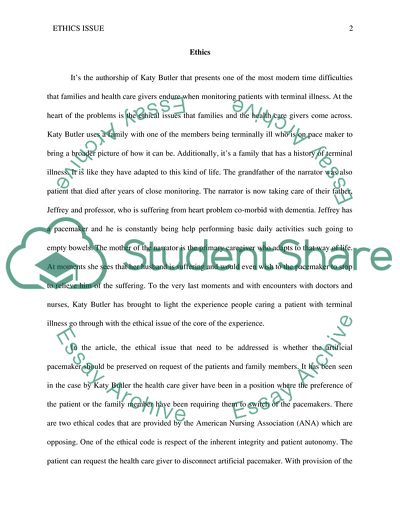Ethics issue paper Essay Example | Topics and Well Written Essays - 1000 words. https://studentshare.org/medical-science/1860882-caring-a-patient-with-terminal-illness
Ethics Issue Paper Essay Example | Topics and Well Written Essays - 1000 Words. https://studentshare.org/medical-science/1860882-caring-a-patient-with-terminal-illness.


